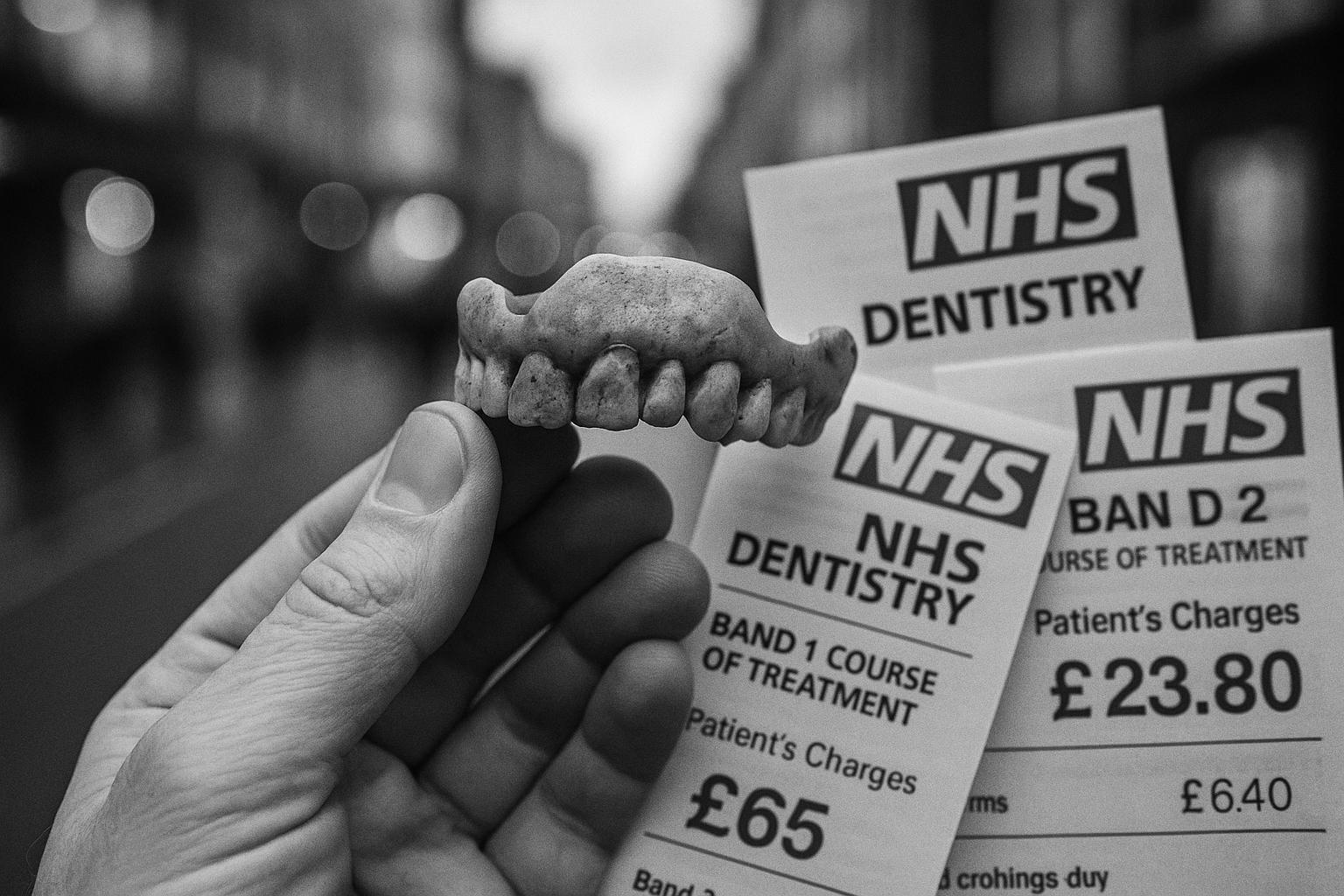The growing crisis in NHS dentistry in England is forcing an increasing number of people in pain to turn to crowdfunding for essential dental treatment, highlighting the severity of access issues in the public system. A recent investigation has revealed a dramatic surge in appeals on GoFundMe, more than doubling from 627 campaigns in 2019 to 1,297 in 2024, with a further 31% rise in the first half of 2025 alone. Patients unable to find NHS dentists or afford private treatment are left with no choice but to seek financial help from the public, a trend the British Dental Association (BDA) condemns as a return to a “Victorian era” reliant on charity for healthcare that should be universal.
The root of the crisis lies in chronic underfunding and an outdated NHS dental contract that disincentivises the provision of care for those needing the most treatment. The BDA estimates that despite inflation and population growth, the dental budget has been effectively cut by over a third in real terms since 2010, with the overall budget frozen at around £3 billion. This persistent lack of investment means NHS dentistry capacity only covers about half the population, with most dentists no longer accepting new adult NHS patients. Consequently, many patients face long waits, emergency pain, and major dental problems that could have been prevented with early intervention.
The underfunding also manifests in low dentist morale and financial viability, exacerbated by pay and price pressures. While NHS patient charges were recently increased by 2.3%, the BDA argues that this fails to resolve the systemic issues. At the same time, the 4.64% pay rise for NHS dentists falls short of recommended levels and fails to keep pace with soaring inflation in dental supplies, utilities, and staff costs. These challenges risk accelerating the exodus of dentists from NHS contracts, as many providers operate at a loss under the current funding model.
Patient stories underline the human cost of the crisis. Paul Gwynne, a 40-year-old chef from Blackpool, described how the loss of most of his teeth has affected all aspects of his life and expressed despair at the lack of NHS options and the high cost of private treatment. Similarly, Lisa Cavanagh Smith from Cheshire shared how her son Mikey, aged 29, endured such severe pain that he pulled out one of his infected teeth himself before finally getting an emergency appointment, where he was told only one tooth could be removed on the NHS despite needing them all extracted. These accounts reflect a growing number of patients who are forced to take desperate measures, including self-treatment, or go into significant debt to afford private care.
The ongoing crisis has prompted political responses. The Labour party has pledged to reform the “flawed” NHS dental contract that pays dentists the same regardless of treatment complexity, while the Green Party has proposed a £3 billion increase in the dentistry budget by 2030 to eliminate so-called “dental deserts” where NHS access is severely limited. Meanwhile, the Westminster government, responsible for funding dentistry in England, is criticised for investing significantly less per capita (£38 per person) compared to other UK nations like Scotland (£73) and Wales (£57), contributing to a lower dentist-to-population ratio than all other G7 countries.
In response to the crisis, the Department of Health and Social Care has outlined plans including urgent appointment rollouts, contract reforms, and prevention schemes such as supervised tooth brushing for young children in deprived areas. The department emphasises its commitment to “stop the decay” and improve the situation, but critics say these measures fall short of addressing the systemic underfunding and fail to meet urgent patient needs.
This NHS dental crisis represents a complex interplay of underinvestment, flawed funding structures, and rising private costs that threaten the accessibility and quality of dental care for millions. With patients increasingly forced to turn to public fundraising platforms and risking their health due to lack of NHS options, the call for proper funding and urgent reform grows louder, highlighting dentistry as an essential healthcare service that must not be left behind.
📌 Reference Map:
- Paragraph 1 – [1] (Mirror), [2] (Mirror)
- Paragraph 2 – [1] (Mirror), [5] (BDA media centre), [7] (the-dentist.co.uk)
- Paragraph 3 – [3] (GDP UK), [4] (Dentistry.co.uk)
- Paragraph 4 – [1] (Mirror)
- Paragraph 5 – [1] (Mirror)
- Paragraph 6 – [6] (Green Party), [1] (Mirror)
- Paragraph 7 – [1] (Mirror), [5] (BDA media centre)
Source: Noah Wire Services
